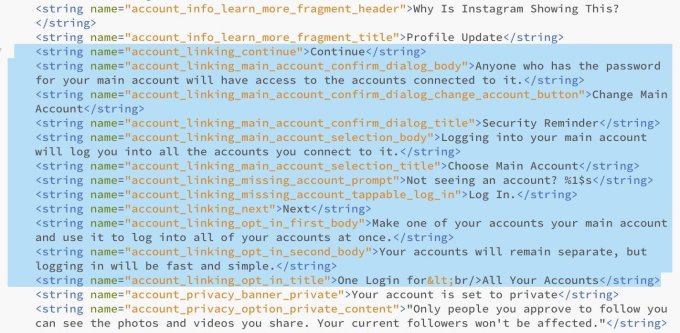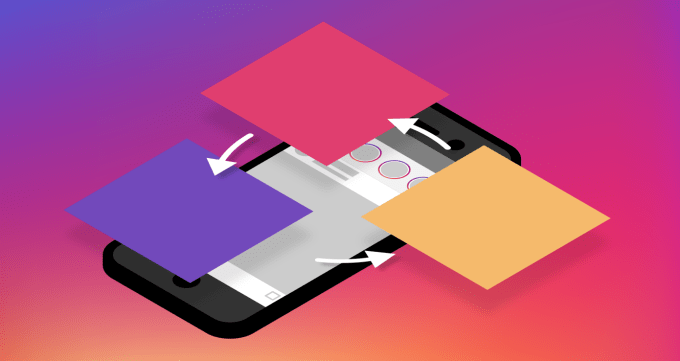Teens’ aversion to Facebook jeopardizes not only the company’s feed ad revenue, but its dominance as an identity provider. The Facebook Login platform keeps people tied to the social network in order to easily access other apps without a separate username and password. But for younger users who ditch or neglect Facebook in favor of Instagram, the tech giant stands to lose one of its most powerful wedges into our lives. Meanwhile, Instagram loyalists are forced to juggle multiple sets of login credentials to manage their personal, Finsta, and business accounts.
But a new feature in development could make it easy to operate multiple Instagram handles while poising the app as a successor to Facebook Login. Instagram has prototyped “Main Account” feature that would let users set one of their profiles as a primary account and then link their others to it. Logging into the main account would instantly log them in to the rest as well. From then on, users would only need to remember a single email/username and password combo. Simpler login could get people switching accounts, posting, and engaging more with Instagram.

Account linking could also power up Instagram’s existing login platform. Currently, third-party apps use it to let you compose feed posts and Stories and then share them to Instagram, or to measure the activity and mentions of business accounts. But Instagram could potentially expand the login platform to let you bring more of your identity or profile info to other apps similar to Facebook Login. That might work better if you could log in through your main Instagram account and then choose which profile you wanted to use or share back to from another app.
TechCrunch was tipped off to code for “Account Linking” in the Instagram for Android alpha version’s APK files by social media research Ishan Agarwal. The code explains “Quickly and securely log in to all of your Instagram accounts with one ID and password . . . Make one of your accounts your main account and use it to log in to all of your other accounts at once . . . Your accounts will remain separate but logging in will be fast and simple . . . Anyone who has the password for your main account will have access to the accounts connected to it.”
Instagram declined to comment regarding the feature. That’s standard for the company when it’s prototyped something is it trying it with employees but hasn’t done any external testing. But many features first spotted in the app’s code at this stage go on to be fully rolled out, like Instagram video calling, nametags, and soundtracks.

Facebook colonized the web using its login platform, scattering buttons with its logo on sites as an alternative to having to create a new account for every service. This helped grow Facebook’s user base, lock in users so it’d be harder for them to deactivate, develop new sources of feed content, and gather data on what people did around the web. Many users who’ve stopped heavily posting to or reading Facebook still maintain a connection with the social network since they rely on it to log in to Spotify, Netflix, and other services.
In fact, Facebook’s login platform is one of its most valuable features where it lacks strong competition. Google runs its own identity platform, but with people increasingly using 2-factor authentication and other security to protect their Gmail accounts, it can sometimes be a bit clumsy. Snapchat is trying to build up its own Snap Kit login platform with partners like Poshmark, but few mainstream apps have implemented it for account creation.

Instagram has been tinkering with other features around the concept of identity. It launched Close Friends for sharing Stories just with your besties, rolled out its own 2-factor authentication option, and is adding a way to syndicate your feed posts to multiple accounts you control. Getting users to establish a main account could also smooth Facebook’s plan to offer encrypted cross-app messaging between itself, Instagram, and WhatsApp. Your main account might be a stand in for your real identity since Instagram doesn’t force a real name policy on users like Facebook does.
If you start to think of Instagram as not just a parallel social network to Facebook but as either an escape pod or heir to the throne, it’s important to consider how Facebook’s core assets will weather the transition. Recent profile redesigns have already tried to make your Instagram profile the center of your online personality. Uniting the prismatic shards of your identity through account linking could let you carry that personality with you across the web.